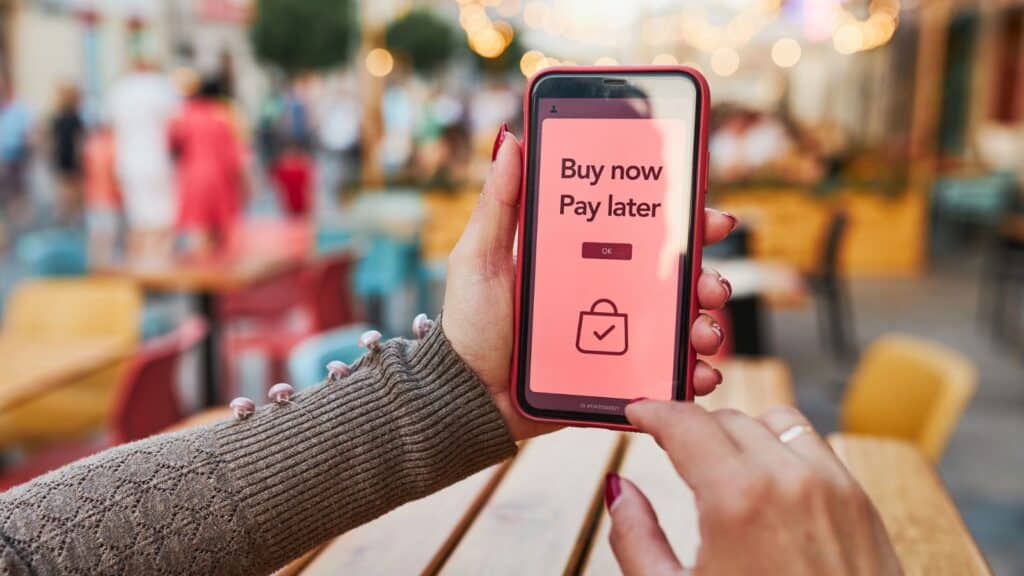Technology is no longer just about convenience. It is built to get you spending more. Apps and websites are designed to steer you toward extra purchases without you even realizing it. Polished layouts and seemingly harmless purchasing prompts are not just there for looks…they’re are meant to keep you buying. Here are eleven ways technology is outsmarting you.
One-Click Checkout Makes Spending Feel Effortless

When you don’t have to enter card numbers or shipping info, it’s way too easy to buy on impulse. One-click checkout removes friction, so you spend without pausing to think. That split-second decision feels harmless—until the charges stack up.
💸 Take Back Control of Your Finances in 2025 💸
Get Instant Access to our free mini course
5 DAYS TO A BETTER BUDGET
Auto-Suggested Add-Ons at Checkout

Ever notice how a small, perfectly paired item pops up when you’re about to pay? Companies use smart algorithms to suggest add-ons that feel irresistible. It’s positioned as helpful, but it’s really designed to increase your total spend without much thought.
Limited-Time Offers With Countdown Timers

Countdown clocks create a sense of urgency that pushes people to buy faster. Whether it’s a flash sale or a disappearing discount, the ticking timer is a psychological nudge that makes you feel like you’ll lose out if you don’t act now.
Personalized “You May Also Like” Sections

These recommendations aren’t random. Companies track your behavior to suggest products that feel tailor-made for you. It feels like the platform “gets” you—but it’s actually a sales tactic designed to increase your cart size with items you didn’t plan to buy.
Seamless In-App Purchases

Apps make it dangerously easy to spend without ever leaving the platform. Whether it’s a game upgrade or a food delivery add-on, in-app purchases are designed to feel minor and effortless—even when they’re quietly draining your account.
High-Quality Product Videos and 360° Views

Seeing a product in motion or from every angle makes it feel more real and desirable. These gorgeous visuals bridge the gap between online and in-store shopping, making you more confident (and impulsive) about clicking “buy now.”
Push Notifications Framed as “Helpful Reminders”

“Items in your cart are selling out!” or “You left something behind!” These notifications are engineered to trigger a fear of missing out. What feels like a helpful nudge is actually a strategic push to close the sale quickly.
Subscription Sign-Ups to Get a Discount

Many companies offer a small discount in exchange for a subscription sign-up. It feels like a win, but unless you’re diligent about canceling, you end up locked into recurring charges you didn’t plan for.
Social Proof Pings in Real Time

When you see pop-ups like “12 people bought this in the last hour,” it creates a subtle pressure to follow the crowd. These real-time alerts make products feel popular and scarce, nudging you toward a purchase decision.
Smooth, Minimalist Design That Lowers Your Guard

Sleek, clutter-free websites and apps reduce friction, making you feel calm and in control. But that simplicity also removes the mental pauses that would normally make you rethink a purchase. The design is meant to keep you in a spending flow.
Personalized Payment Plans That Feel Smaller Than They Are

Buy Now, Pay Later options are presented in small, bite-sized amounts—“Just $25 today!”—making big-ticket items seem more affordable. The breakdown feels manageable, even though you’re committing to a larger expense over time.
9 Simple Mind Tricks to Actually Enjoy Spending Less

Learning to spend less doesn’t have to feel like deprivation. It’s possible to make it an exciting challenge rather than a struggle. These practical mind tricks turn saving money into a lifestyle shift you’ll not just accept but actually enjoy. 9 Simple Mind Tricks to Actually Enjoy Spending Less



